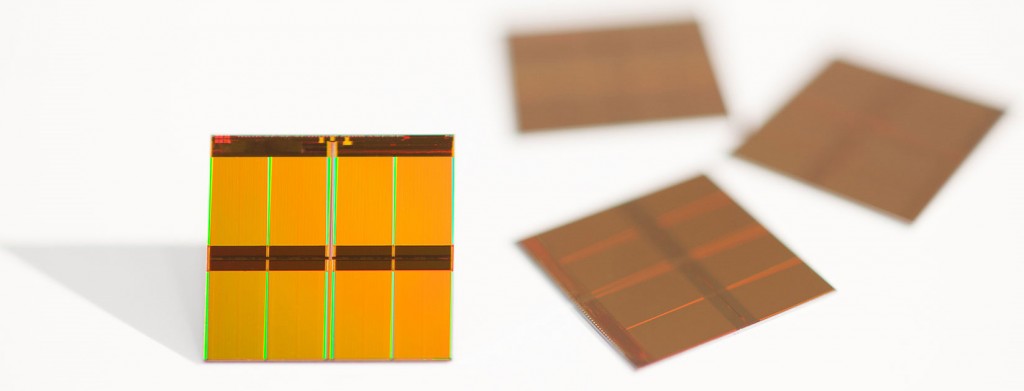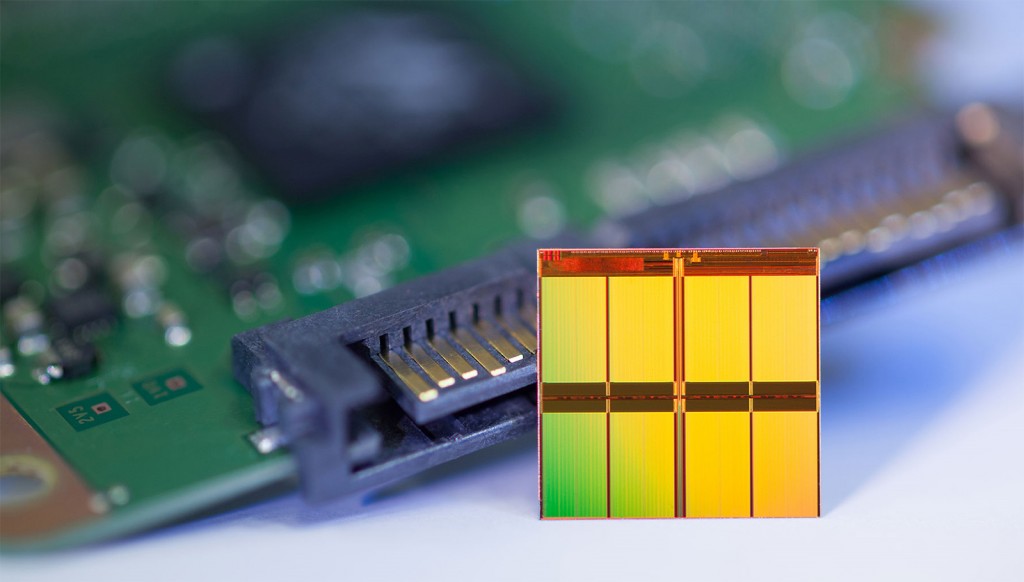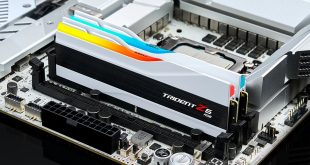Micron Technology, one of the world’s leading maker of DRAM and NAND flash memory, said that late this year the company would offer triple-level cell NAND flash made using 16nm process technology. Such memory could enable very cost-efficient flash-based storage devices, including solid-state drives in 2015.
“Our 16nm NAND yields have been very positive and position us well from a cost perspective,” said Mark Adams, the president of Micron, during the most recent conference call with investors and financial analysts. “We are currently planning to ship 16nm TLC [NAND flash] in calendar Q4 in order to better position our portfolio from a cost perspective in the retail and consumer segments.”
Nowadays the vast majority of NAND flash storage devices (such as SSDs) are based on MLC (multi-level cell, also known as 2-bits per-cell) memory. TLC NAND (also known as 3-bits-per-cell NAND) flash memory has been used for memory cards, audio players, USB drives and other consumer storage applications. The MLC memory is much more durable than TLC memory. For example, typical MLC NAND cell can typically endure 3000 – 10000 erase/write cycles, whereas in case of TLC the number of erase/write cycles a cell can sustain may be just about 1000. Consequently, in a bid to make TLC-based SSD a special firmware design that balances performance, reliability and product life is needed.
Micron does not exactly promise to start making SSDs based on TLC NAND flash memory this year. It only implies that it will roll-out chips with very competitive prices. Its customers will be able to use them for various consumer uses like eMMC and embedded storage applications, whereas its Crucial subsidiary could use them for inexpensive SSDs sometimes early in the next calendar year. In fact, it will have to do this, given that both Toshiba and SanDisk will offer TLC-based SSDs by late 2014.
“Initial applications for our 16nm TLC components will be more consumer and retail oriented upfront,” said Marc Durcan, chief executive officer and president of Micron. “To-date no one has had a lot of success even on the client side enabling TLC memory. There is a lot of work being done […] around controller development […] because I think that is where the error correction and capabilities around enabling TLC to be reliable enough to ship in [the SSD] segment. But we still think that is kind of a 2015 calendar year phenomenon, we do not see that happening in large scale in calendar ‘14.”
KitGuru Says: TLC NAND flash, especially when made using 16nm fabrication process should be very cost-efficient. However, it will be really hard to make it truly reliable as NAND flash using thinner process technology is generally less reliable than NAND flash made using thicker manufacturing process, whereas TLC is less durable than MLC overall.
 KitGuru KitGuru.net – Tech News | Hardware News | Hardware Reviews | IOS | Mobile | Gaming | Graphics Cards
KitGuru KitGuru.net – Tech News | Hardware News | Hardware Reviews | IOS | Mobile | Gaming | Graphics Cards





One comment
Pingback: 镁光将于下月发布采用16nm闪存颗粒的入门级Crucial SSD | 极分享-专注于分享最新的科技资讯|关注我们,做科技达人